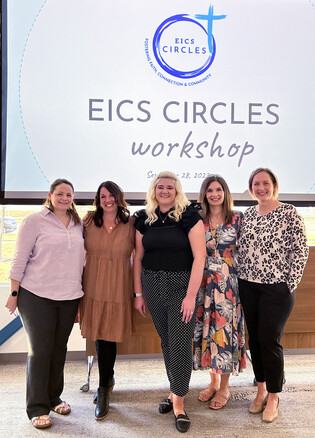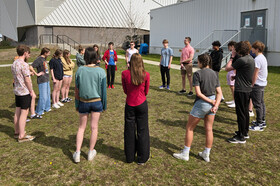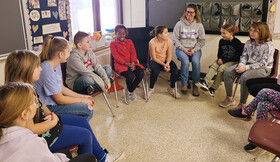Fostering faith, connection, and community

EICS Circles is a universal approach that our educators can use with students of all ages in a multitude of contexts to foster faith, community, and connection in their classrooms and school communities. Foundational elements of circles are rooted in Indigenous teachings that share a model for a respectful approach to talking with others to provide a sense of communion and interconnectedness.
The EICS Circles Team was initiated and facilitated by EICS Inclusive Learning Director Bonnie-Lynne Boehm, who in her previous role as a school principal integrated and led whole-school circle practices. She intentionally formed the EICS Circles Team to include EICS staff who have a wealth and breadth of experiences, skills and knowledge in psychology; leadership; educational consulting; and early learning, elementary and secondary teachers.
The goals of EICS Circles are for educators to:
- Gain foundational knowledge and understanding of circles as a universal approach that encourages respectful communication and empathy for others.
- Foster relationships, establish a sense of belonging, and enhance our EICS communities by using circles in the classroom and school communities.
What students say about EICS Circles
- "I look forward to telling people about how I feel, my point of view and not being judged for what I say."
- "It really makes me calm, because I like how quiet it is when everyone is listening."
- "You get to know everybody and then your classroom feels like family that bit more because you know about one another."
- "Sometimes if you have something that you think is a bit weird that you have in common with someone else it can make you feel good."
- "I like circles because I like sharing with other friends, it feels nice and warm and welcoming in my classroom afterwards."
- "I think it is nice. If you are doing a lot of work, it is a break that regroups you."
What educators say about EICS Circles
100% of participants agreed that partaking in the EICS Circles Workshop has enhanced their knowledge, skills, and confidence using a universal circles approach in the classroom to foster faith, connection, and community.





